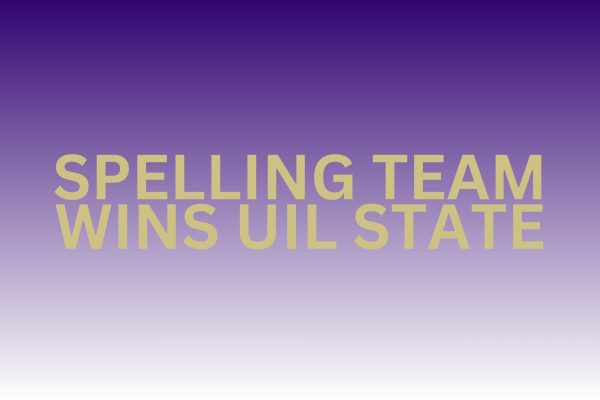Ford talks about childhood as an adoptee
On September 13, 1966, a child named James Lee was born in Lansing, Michigan. He was immediately placed in an orphanage and was later adopted by Charles and Rosemary Ford. That boy would grow up to be our current principal, Dan Ford.
Growing up, Ford’s parents told him that parents don’t usually have a choice in their kids, but that he was chosen.
“They made me feel special,” Ford said. “I was adopted, and I always grew up knowing I was adopted, but ‘adopted’ didn’t mean anything. They were mom and dad, and I was their son, and that’s just the way it was.”
As Ford grew, he had more and more questions about his biological parents and himself.
“I asked my parents what information they had,” Ford said. “I asked, ‘what’s my heritage? Am I just this white guy?
Where did I come from?’ I found out my birth name, but that really didn’t give me any information about who my parents were.”
Ten years ago, he started to dig deeper, only to find out that adoption records for Michigan in 1966 were closed. He had to hire an attorney to ask a court to open the records.
“The court sent a letter out to my biological mother, and they said, ‘somebody from your past wants to meet you,’” Ford said. “They asked her if she wanted them to release her information. The ball was in her court.”
If his biological mother had said ‘no,’ the adoption records would have been sealed forever.
“She said yes, thank goodness,” Ford said. “As soon as I got her information, I contacted her and talked to her on the phone for a couple of hours. I asked questions like, ‘why was I put up for adoption?’”
This she answered. When he asked about his father, though, she wouldn’t tell.
“She was married at the time, and my biological father was also married at the time,” Ford said. “I found out that I have a lot of half-brothers and half-sisters as a result of this, and I was able to contact them. One of them, who I still keep very close contact with, remembers who my father was, and gave me his information. I contacted him, and he didn’t even know that I existed.”
Ford and his family decided to fly up to Michigan and meet his biological parents. When he met his birth mother for the first time face-to-face, the question-asking continued.
“She had a lot of questions for me, and I had a lot of questions for her,” Ford said. “I was thankful she didn’t choose to have an abortion, and I was thankful she placed me into an opportunity to succeed. I came from a family where education wasn’t important. They may have had high school diplomas, or they may not have had high school diplomas. Further education was not really considered.”
He grew up a “preacher’s kid” and says his family raised him well.
“I was adopted into a fantastic family,” Ford said. “We talk about nature vs. nurture, and what I would say is that it doesn’t matter where you come from, it doesn’t matter how much money you have, you can set your mind to do anything you want to do and become anything you want to become.”
Ford considers what he has accomplished in life, at least to some degree, a reflection of his upbringing.
“It’s not what I have in my background, it’s what I’ve had all along supporting me,” he said. “It’s caused me to have an internal drive. I didn’t know who I was, so I always wanted to succeed and please people. I appreciated some of the things other kids take for granted.”
He feels a calling to be around kids and give them opportunities to succeed.
“While there are boundaries and guidelines, students should know they can reach anywhere they want to go,” Ford said. “If I can provide a little tiny bit of inspiration and always be in their corner, that’s great. Maybe in a subtle way, in the back of my mind, being adopted did influence my career path. Maybe it made me say, ‘let’s show these kids that they can reach their dreams.’”
Your donation will support the student journalists of Denton High School. Your contribution will allow us to purchase equipment and cover our annual website hosting costs.

